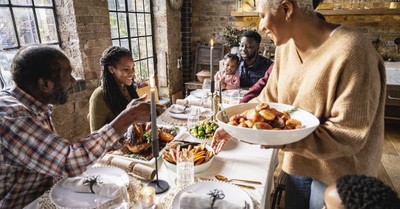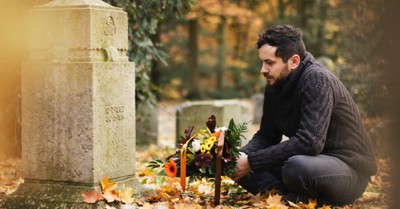Solo Zone: Gays, Christians and Holiness
- Tim Laitinen Crosswalk.com Contributing Writer
- Published Mar 18, 2011

It’s a suspicion married folk often have of singles:
“Are you gay?”
Even amongst Christians, probably even in your church, adults living solo can’t avoid the question. Especially the longer we stay single.
And especially now that we know gay Christians can and do exist. After all, sex is like food and money: none are bad in and of themselves. But our desire for them can be perverted for various reasons, resulting in such sins as gluttony, greed, and homosexuality. The only thing different about homosexuality has been the church’s refusal to acknowledge it for what it really is: just one of many expressions of sin.
An expression of sin that has nothing to do with marital status, and everything to do with understanding how God wants us to live.
Sin in Perspective
Ricky Chelette, director of Living Hope Ministries, calls homosexuality “same gender attraction,” or SGA. If that sounds like an attempt to re-interpret the sin behavior of homosexuality, you’re right. Advocates for ministry to people struggling with SGA hope a more accurate definition of the condition can help people of faith recognize that although gay Christians do exist, homosexuality doesn’t need to be a lifestyle.
Because how we view sexual awareness also helps frame our definition of grace. And vice versa.
If we consider homosexuality to be a pattern for living, being gay becomes a prism for an identity that does not honor Christ. If, however, we view homosexuality as a sinful behavior, like heterosexual adultery, we can also see how God’s grace can provide freedom from enslavement to what makes us crave a sinful behavior in the first place.
The Apostle Paul says as much in Galatians 5:19-26, where he lumps sexual immorality and impurity, hatred, jealousy, selfishness, and inebriation together as sin patterns exhibited by people who do not follow Christ.
“Those who live like this will not inherit the kingdom of God.” (NIV, emphasis added)
Instead, “those who belong to Christ Jesus have crucified the sinful nature with its passions and desires.”
Moving Past the Stereotypes
As a Southern Baptist minister, Chelette has heard all the stereotypes evangelicals hype concerning homosexuality. Particularly since SGA continues to gain prominence in North America’s sociopolitical narrative. Unfortunately, none of it makes for effective outreach to and discipleship of people seeking release from SGA.
Instead, he thinks we believers need a reality check. “The church must see the sin of homosexuality as simply another sin among the many sins for which all of humanity is guilty,” Chelette explains. “Sin is prevalent and destructive in everyone’s life and must be addressed by the gospel. I don’t believe a single sin defines the identity of a person.”
And, speaking of erroneous thinking, don’t assume SGA is exclusive to singles. Chelette estimates that of the people coming to Living Hope for care, 40 percent are married.
Indeed, marriage isn’t a cure for anything, as the evangelical church itself has proven. Consider our vanishing influence in our society’s dialog regarding homosexual marriage.
“We have done a very poor job of educating people about the sanctity and permanency of heterosexual marriage,” Chelette admits. “With those in the church having the same rate of divorce as those outside the church, it is no wonder the church has lost her moral authority in speaking on marriage.”
Marital status aside, perhaps the biggest misconception Chelette works to dispel involves the popular notion that homosexuality is all about sex.
It’s not.
It’s about relationships, and how intimacy, affirmation, and affection have been modeled in either healthy or unhealthy ways during one’s lifetime.
“SGA is a relational struggle born out of deprivation of relationships at appropriate developmental stages in one’s life,” elaborates Chelette. The emotional damage these formative experiences inflict “manifests itself in a strong desire to connect sexually with others of the same gender.”
Which brings us back to marriage: Does settling down with a spouse signify victory over SGA?
Not exactly, says Chelette, speaking from his experience as a longtime single adults pastor.
“I don’t think that many folks who struggle with unwanted SGA should be single. However, I also do not believe that heterosexual marriage is the goal of someone who struggles with SGA.Their goal, as should be the goal of every believer, is to be conformed to the image of Christ, living a life submitted to his will and way, so that we might bring him glory!”
Rescue, Transformation and Sanctification
So, how can people of faith respond to this ministry challenge? Chelette says we need to develop a biblical worldview regarding our sin nature.
“No one who follows Christ is instantly perfect. We all will spend the rest of our lives on a process of sanctification—becoming more like Jesus… I truly believe that the church must be creating an environment of grace, love and vulnerability so that individuals can share freely whatever struggles they might have. This would include, but not be limited to, SGA.
“We are all sinners and therefore all deal with some kind of sin that must be confessed and repented of if we are truly to find freedom from its reign in our lives.”
Chelette confirms most people who struggle with SGA fear that if the church learns of their sin, they’ll be rejected, branded as perverted, and/or asked to leave. What makes this even more troubling involves the double standard that believers have with various other sin behaviors. To these reactions, Chelette’s rebuke is adamant:“No one should fear rejection when seeking to know the Lord. No one.
“Though we may not struggle with this particular sin, that is simply by God’s grace and mercy. We have other sins they may not. Sin is not an ‘us – them’ thing, but an ‘ALL’ reality. We are ALL sinners; some, saved by grace.”
Grace for the Journey
Then Chelette strikes at the core of why many Christians find it easier to condemn people struggling with SGA than reach out to them.
“If we believe the gospel, we cannot limit its application to only those who have sins for which we feel a greater sense of familiarity, comfort, affinity or social acceptability. The message of God’s grace and redemption must be presented to all who have ears to hear.”
It may be that for some people affected by SGA, the sinful desires may never totally vanish. Salvation through Christ is freedom from God’s wrath over our sins, not freedom from sin itself. Otherwise, homosexual tendencies would vanish for believers, just like gluttony, greed, and lust would automatically disappear—but they don’t, do they?
“As we walk in holiness and obedience, we want the things that God wants for us. His will becomes our will,” Chelette affirms. “Measuring change and counting it as success or failure is to say that there is some point at which we all arrive. I don’t believe that is true in the Christian worldview.
“We are all in process of becoming more and more like Christ. That process will not ultimately be complete until he returns and transforms our flesh into a new body and we are transformed completely into the holy being he has designed for us to be—free from sin and shame.”

You can read about his unique viewpoints at o-l-i.blogspot.com.




















